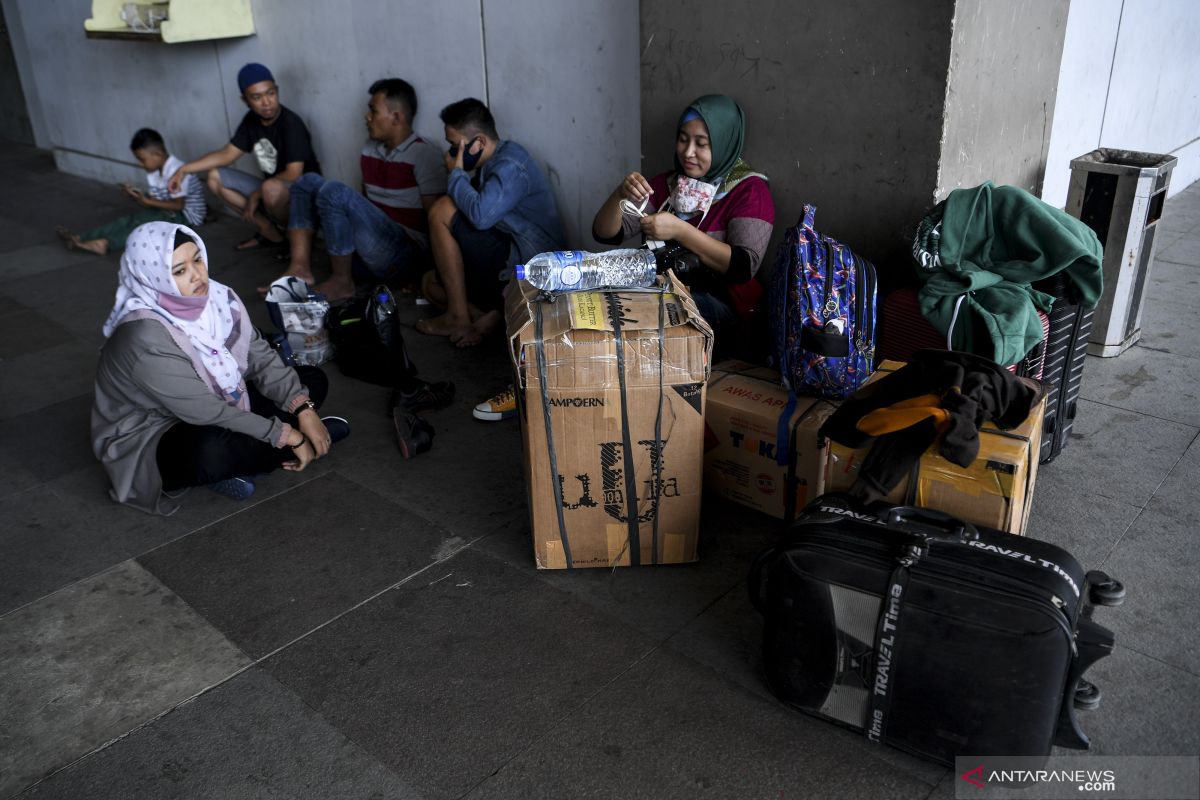Travel enthusiasts have been forced to stay at home with most airways stopping operations temporarily and many countries and cities restricting entry of foreigners. Meanwhile, students have been told to study at home, and employees have taken to working from home.
Indonesian Muslims, who constitute nearly 90 percent of the country’s population of 270 million, have also been forced to change their tradition of praying in mosques during the Islamic holy month of Ramadhan, which began on April 24 this year.
Normally, during this month-long period of fasting, Indonesian Muslims break their fast at sunset with relatives, friends, or colleagues in restaurants or hotels, but this year, that has been rendered impossible due to many restaurants closing or only serving take-away food.
The outbreak of COVID-19 is also set to change festivities in the post-Ramadhan period, when Muslims head to their hometowns for celebrating Idul Fitri with relatives.
Every year, there is a mass exodus as millions of people leave big cities and head to their regional hometowns for Idul Fitri. This exodus is referred to as ‘mudik’. Last year, around 20 million people embarked on this post-Ramadhan exodus.
This year, Idul Fitri will fall on May 24 and 25. But, due to the COVID-19 pandemic, the Indonesian Government has banned ‘mudik’ and imposed restriction and sanctions to prevent people from journeying to their hometowns.
On April 21, 2020, President Joko Widodo (Jokowi) announced a ban on ‘mudik’, which came into effect starting April 24.
"At today's meeting, I decided that the ban will be applied on the ‘mudik’ (Idul Fitr exodus) tradition for all citizens," President Jokowi stated at a virtual meeting to discuss precautionary measures in connection with the homebound tradition.
The ban is part of efforts to break the chain of COVID-19 transmission, as the government has imposed large-scale social distancing measures that include restrictions on the movement of people.
As of April 24, 2020, Indonesia has recorded 7,775 confirmed cases of COVID-19, with 647 deaths and 960 recoveries. The centers of COVID-19 transmission include Jakarta, several cities in West Java, East Java, Central Java, and Banten.
A recent survey by the Transportation Ministry showed that 68 percent of Indonesians have decided not to follow the ‘mudik’ tradition this year, while 24 percent have insisted on embarking on ‘mudik’, and 7 percent have already returned to their hometowns.
Just five hours after the ‘mudik’ ban came into effect, the Jakarta Metropolitan Police forced 1,181 car drivers to turn back from police checkpoints set up for blocking vehicles on the Jakarta-Cikampek toll road.
"From 00:00 a.m. to 5 a.m. Western Indonesia Time (on April 24, 2020), 1,181 car drivers were forced to turn back at two blocking locations," director of the Jakarta Metropolitan Police's Traffic Division, Sen. Coms. Sambodo Purnomo, stated.
The checkpoints for stopping vehicles during the enforcement of the temporary ban on homebound travel were located at Bitung road heading to Merak and Cikarang Barat road heading to Cikampek, he revealed.
He estimated that 25 thousand cars traveled from Jakarta to Cikampek through the Cikarang Utama Toll Gate on April 23, and 27 thousand early on April 24.
Earlier, the Indonesian Transportation Ministry had said the temporary ban on use of public transportation, private vehicles, and motorbikes for ‘mudik’ would come into effect at 00:00 WIB on April 24, 2020.
However, the ministry's spokeswoman, Adita Irawati, noted that the movement of logistics, drugs, officers, fire engines, ambulances, and hearses has been excluded from the ban, as stipulated in the Minister of Transportation's Regulation on Transportation Control during the Idul Fitri 1441 H Mudik.
The regulation bans public vehicles, private vehicles, and motorbikes from entering and departing from regions implementing Large-Scale Social Distancing (PSBB) measures and regions demarcated as COVID-19 red zones, such as Jakarta, Bogor, Depok, Tangerang, and Bekasi.
The ban applies until May 31, 2020, for land transportation; June 15, 2020, for railway transportation; June 8, 2020, for sea transportation; and June 1, 2020, for air transportation.
"This ban can be extended depending on the situation of the COVID-19 outbreak," she remarked.
The authorities are only restricting access to and from certain areas, instead of blocking roads, as movement of goods and logistics has been excluded from the ban.
On March 27, 2020, the Indonesian Government's spokesperson for COVID-19 response, Achmad Yurianto, had highlighted the importance of people not returning to hometowns to avoid the risk of spreading the contagion to more regions.
Yurianto had noted the risk of COVID-19 transmission would be much higher due to close contact between travelers, especially among those using means of public transportation that are crowded.
To support the ‘mudik' ban, Indonesian railway company PT. Kereta Api Indonesia (KAI) has decided to cancel several long-distance train trips, including all trains heading to Jakarta and Bandung as well as departing from both cities, starting from April 24.
Hence, for Indonesian Muslims, Ramadhan and Idul Fitri this year will not be the same.
Related news: Police turn back 1,181 car drivers following "mudik" ban enactment
Related news: Mudik ban to come into effect April 24 midnight
Editor: Rahmad Nasution
Copyright © ANTARA 2020


